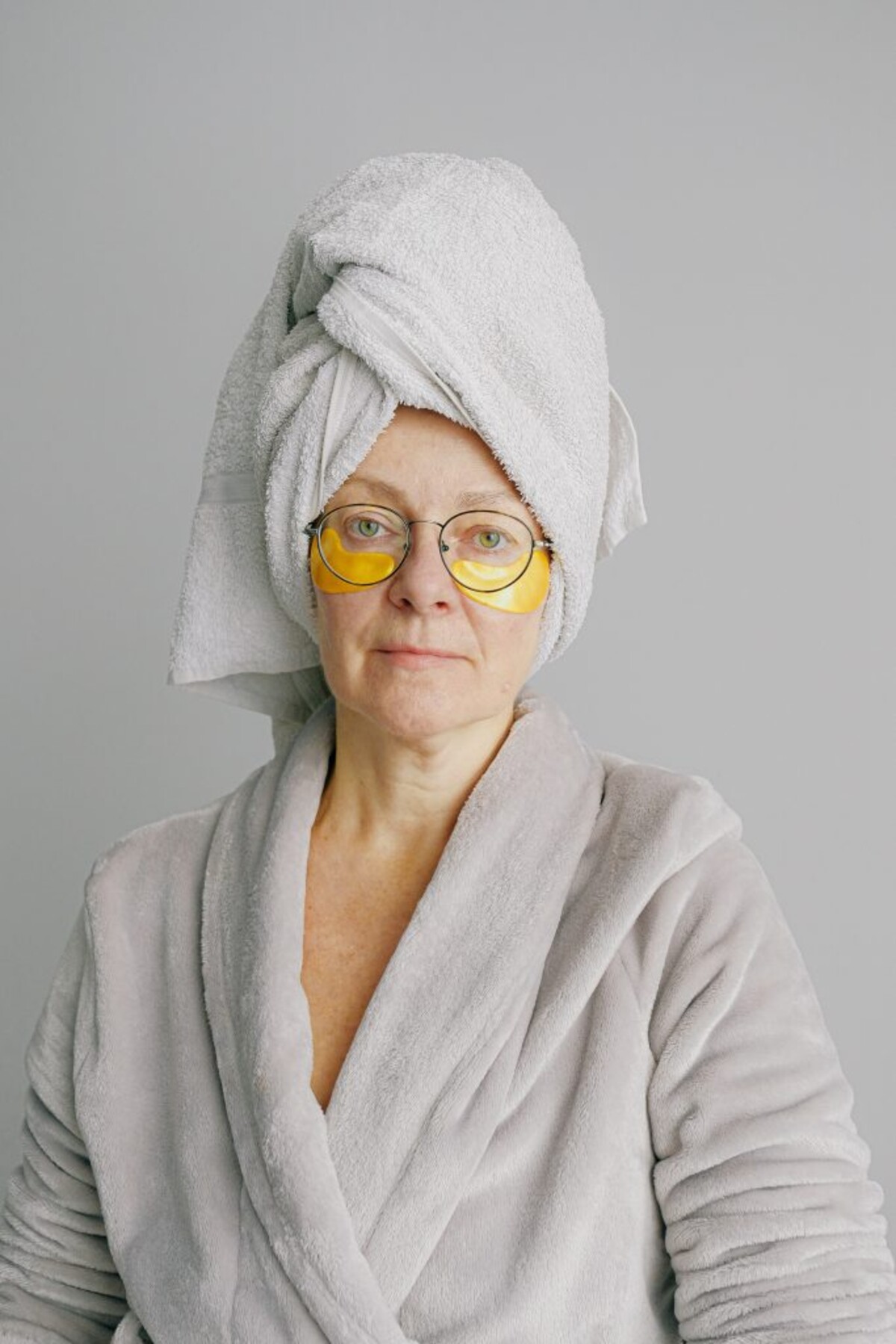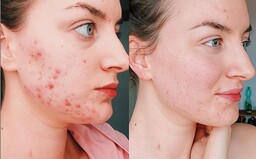 Ozempic can cause vision loss. A new study has shown a link between the drug and eye problems
Ozempic can cause vision loss. A new study has shown a link between the drug and eye problems
Ozempic can cause vision loss. A new study has shown a link between the drug and eye problems
Ozempic can cause vision loss. A new study has shown a link between the drug and eye problems
Collagen Supplements - Can They Really Smooth Out Wrinkles, Boost Immunity or Fix Joint Pain?
When do you need to start supplementing collagen, how to choose the right brand and what effects can you really expect? Does it even make sense to invest in it when you're young and rarely work out?
If problems persis, please contact administrator.
Collagen is a modern hit that took Instagram influencer profiles by the storm. It is said that it will smooth out your wrinkles, strengthen your joints, boost your immunity, protect you from coronavirus... Actually, according to these promises, it's supposed to turn your miserable existence into a great life.
Many influencers, magazines and beauty brands propagate collagen products quite heavily these days. Some even prefer versions with papaya flavor and pieces of 24-carat gold. There's many examples of that and it is only natural that people are beginning to doubt the effect of these supplements, question why there are other substances inside and how to go about choosing the right version.
We've contacted biochemists, nutritionists, dermatologists and exercise experts to find out whether these claims are scientifically substantiated. Before you flash your credit card, take the time to read about what the mythical collagen actually is and when do we need to replenish our bodies with it (if at all).

An adhesive that'll save you from falling apart and help you look good
Collagen makes up almost everything in your body: skin structure, bones, tendons, fibrous cartilage, connective tissue and teeth, said the biochemistry expert Pavel Blažíček, Head of the Alpha Medical Laboratory of Special Methods. You'll find it in the shock-absorbing elastic cartilage, in muscle tissue and arteries. It is responsible for the elasticity and resilience of your skin and hair. Simply put, it's almost everywhere and it keeps you together.
It's a protein that forms about a third of all protein in our body and it really has its justification in medicine and cosmetics industry. Additionally, it has the potential to improve the appearance of hair and skin, so much as the health of our joints and bones. The chemist also adds that it improves the digestion and can also aid in weight loss.
All of this sounds brilliant and since collagen naturally occurs in our body, it can perform all of these functions quite well on its own. Unfortunately, we lose it with age and there's no way to stop that from happening. Sorry.
"With age, we form less and less collagen in our bodies," dermatologist Nadezhda Brabcová, specialized in hair and scalp health, confirmed. She also likes to talk about her field on Instagram and help people make informed hair care decisions. Often, she addresses the consequences of declining collagen in practice.
She says that we reach the optimal amount of collagen between the ages of 25 to 30, and it goes downhill from there. A bit of bad news for 50-year-olds: at this age, people only have about half the amount and the body almost no longer produces new collagen.

SPOILER: You can't just sit around and expect miracles from collagen
All of the experts we've consulted agree on one thing: Without proper body care, any supplement will only work to a very limited extent, if any. Excessive amounts of refined sugars and carbohydrates is considered the most risky, since it disables the reconstruction of collagen cells.
"Rather than supplementing collagen endlessly, it's appropriate to think about the causes of its loss," biochemist and PhD student of molecular biology Lenka Hrobárová wrote on her Instagram. She points out that in an effort to resolve wrinkles or sore bones, people neglect other risk factors that, paradoxically, contribute to the decline in collagen.
Collagen production is also affected by the amount of alcohol, quality sleep and diet. Collagen is formed at night, when other processes in the body, such as growth hormones, contribute to the development. In other words: you don't sleep = you don't regenerate. If you have quality amino acids incorporated in your diet and you sleep well, you most likely have enough collagen.
„Another one of the main reasons why women have less collagen in their skin is UV radiation. It's a basic factor that destroys collagen," she continues and prompts that if you frequent tanning salons or regularly expose yourself to sunlight with a poorly chosen SPF factor, the money spent on collagen supplements is pretty much wasted.

According to dermatologist Brabcová, collagen supplements are similar to other nutritional supplements. „It's an additional source of substances that the body can produce or extract from a balanced diet. If you're missing these substances, the supplements will help. If you have enough of them, supplements usually won't hurt you.“ The hair expert also recommends to focus mainly on lifestyle and hair care.
1. Wash your scalp regularly, using lukewarm (not hot) water.
2. Don't forget about the conditioner.
3. Don't brush your hair when wet.
4. If something's bothering you for a long time, consult a doctor.
Whether it's hair, nails, an aesthetic problem or a rash, Brabcová says that every problem is best to be consulted with an expert. Supplements that are regularly accessible are playing a supportive role, for the most part. Regarding methods that support collagen production and hair growth, she mentioned a few that are proven by practice and clinical studies. Some of them are plasma therapy, mesotherapy, dermarolling (so-called miniature needle rolling) and low-power laser therapy.
Goodbye, pain and wrinkles, you won't be missed!
According to biochemist Blažíček, you can avoid the unpleasant side-effect of ageing by supplementing the necessary amount of collagen in the body. Collagen supplements have a beneficial effect on sore bones, joints, weakened cartilage tissues, susceptibility to various injuries, even during quite normal activities. Skin problems, such as dull, sagging and dry skin with wrinkles, can be healed by a third in about 2 - 3 months.

„Frankly said, collagen is like an energizer. It's a molecule associated with beauty thanks to its exceptional abilities to maintain youth in the human body - whether in terms of physical activity or appearance,“ the experienced chemist continues. These are scientifically proven effects, not just short-term hype that's been formed around the topic of collagen over the recent decades.
Nutrition specialist Petra Kopecká says that collagen is worth supplementing, as our body makes less and less of it after the age of twenty-five. She says that although we can try to supplement it with our diet, we do not have enough studies about that and the effect is more difficult to measure than with nutritional supplements. „I often recommend the quadruple-combo to people with joint problems: chondroitin, glucosamine, collagen and MSM (methylsulfonylmethane), combined with vitamin C. It works very well, I can see a difference both in mobility and pain relief,“ she said. She has experienced the impact on her own, but her clients as well. They also seem to enjoy stronger hair and nails.
It's important to be patient. According to Kopecká, you can only feel the effect on your bones and joints after a few months. In combination with a good workout routine, you'll also strengthen the muscles around the joints, but if your problem is the lack of substances, you won't supplement them with exercise.
Pay attention to the fact that collagen is a protein and the body treats it that way too. First, it breaks it down in the digestive tract into amino acids, which are later distributed into the bloodstream. The body has no idea which protein the individual amino acids originate from, and it uses them at its own discretion, biochemist Hrobárová explained. You don't have any control over that, unfortunately, just like it's impossible to lose weight from only one part of your body. You are only responsible for the quality of protein, your lifestyle and your diet in general. The body has to produce the collagen on its own.
Not everyone needs to supplement collagen at 25, right when it starts decreasing. „The fact that our knees are sore doesn't necessarily mean that it's caused by the lack of collagen. It can be a spectrum of various problems, I'd advise consulting a doctor first,“ Hrobárová says.
Milan Sedliak, Head of the Department of Biological and Medical Sciences at the Faculty of Physical Education and Sport at Comenius University in Bratislava agrees - without a diagnosis, you really don't know what's wrong with you. „Joint pain is a very broad topic. You need to find out the reason why your knee is hurting. It could be an inflamed tendon and collagen won't help us with that. In that case, we can get help strengthening the joint from the doctor in the short-term perspective and physiotherapist from a long-term perspective,“ he said for Refresher.

In the case of a damaged cartilage, collagen can help. „There is no evidence that collagen supplement can restore cartilage, but it does reduce pain and delays joint replacement.“ In one breath, Sedliak adds that it's important to visit the doctor first, to make a diagnosis. A nutritional supplement isn't always the right answer to pain.
„In addition, there's a difference between a nutritional supplement and medicine. Drugs are strictly controlled and the content of active substance in each batch is closely monitored. In the case of supplements it's not so strictly controlled and they don't always contain the right concentration.“ According to him, the quality of collagen supplements is uncertain and it varies from one to another, depending on manufacturer.
„The good news is that good training routine can strengthen the tendons,“ Sedliak says about strength training. Improvement comes in three months already, which aids with the protection of your joints. „In addition, according to studies, tendons will strengthen even more with systematic consumption of regular whey protein after training,“ scientist added. These findings are confirmed by the words of biochemist Lenka Hrobárová. Our body doesn't distinguish the origin of small chains. Simply put, if you have enough, your body will take and produce what it needs. That goes for collagen as well.
Daily dose of 3 grams with apple juice is the bomb
Chemist Blažíček claims that the scientific consensus is following: „Optimal daily dose is 2 to 3 grams daily, but taking higher dosage in the long term isn't harmful. Less than one gram per day is invisible for the body and more than 3 grams is unnecessary.“ Maximum dose should be 10 grams, but the form, and what you combine it with, does matter.
Hydrolyzed collagen is the easiest for the body to absorb. The molecule here is already broken down into smaller parts and it works best in combination with vitamin C. People have positive experiences with marine collagen that keeps its living (bioactive) form. Lenka Hrobárová emphasizes that expensive collagen isn't necessarily the best and especially not if it's a celebrity brand. It is often promoted by people who can afford professional skin care and you simply won't look like them without the same investment.
1. The daily amount of collagen should be at least 3 grams.
2. It should also contain vitamin C, or you can take it together with juice for example.
3. Choose a hydrolyzed collagen, ideally a powder to dissolve in a drink. .
4. Pork, bovine or marine? Studies vary, it apparently makes less of a difference than the amount and quality of your lifestyle.
5. You don't need aromas, artificial sweeteners and a bunch of other substances. Look for a clean composition that only contains the necessary stuff. You don't need to worry about natural colorants like curcumin or nettle extract (yellow and green), those are harmless.
In the case of joint and bones, it's best to consult a doctor. The lack of collagen might not necessarily be the problem in every case.
Anyway, you don't need to buy collagen creams and serums. It is too big of a molecule to reach deeper layers of the skin and have the desired effect. They've only made studies on dozens of people with these "miraculous effects", however in cosmetics, you need thousands to tens of thousands to confidently claim that something actually works.

According to the chemist Blažíček and dermatologists, these creams only help with moisturising and softening of the skin surface. Collagen binds water, which is pleasant for the touch, but it won't fill your wrinkles. You can support collagen stimulation with active substances such as vitamin A - retinoids, that also help the skin stay elastic and bright. When it comes to fighting wrinkles, experienced doctors can help you with that.
Similarly, you can't expect guaranteed miracles in your general beauty. „There's multiple studies that prove positive contribution of collagen to hair growth, but these studies have a relatively low number of participants,“ doctor Brabcová stresses what biologists have confirmed. Collagen is promising, but large meta-analyses or studies with thousands of participants are still non-existent in this area. Experts are curious, but skeptical - and that's mainly based on their practice with clients.
You won't get rid of wrinkles or joint pain by waving a magic wand. Same as weight loss. We all wish it would be possible by now, but who knows if we'd appreciate it if that was the case.
If problems persis, please contact administrator.















